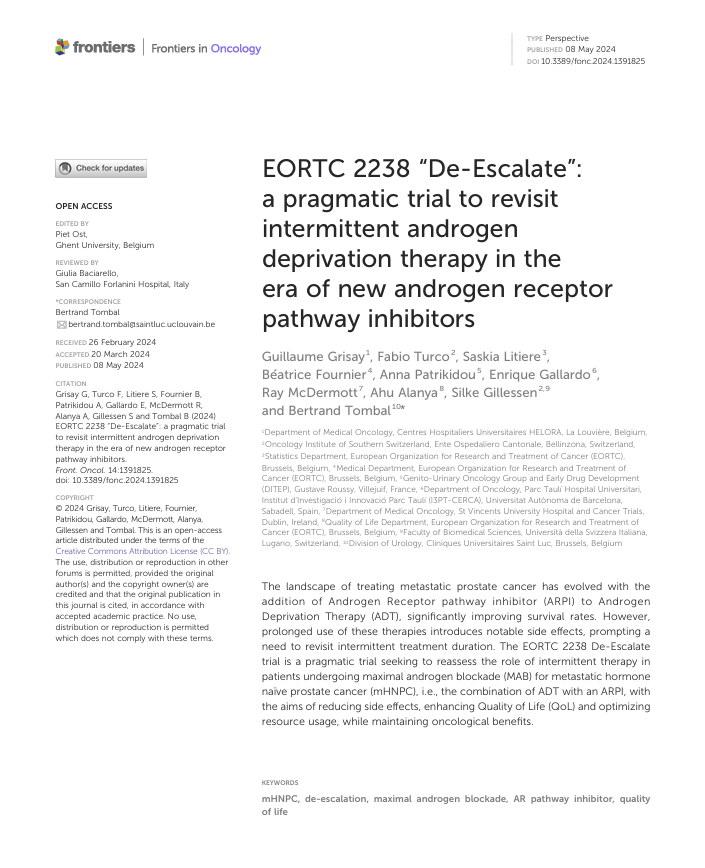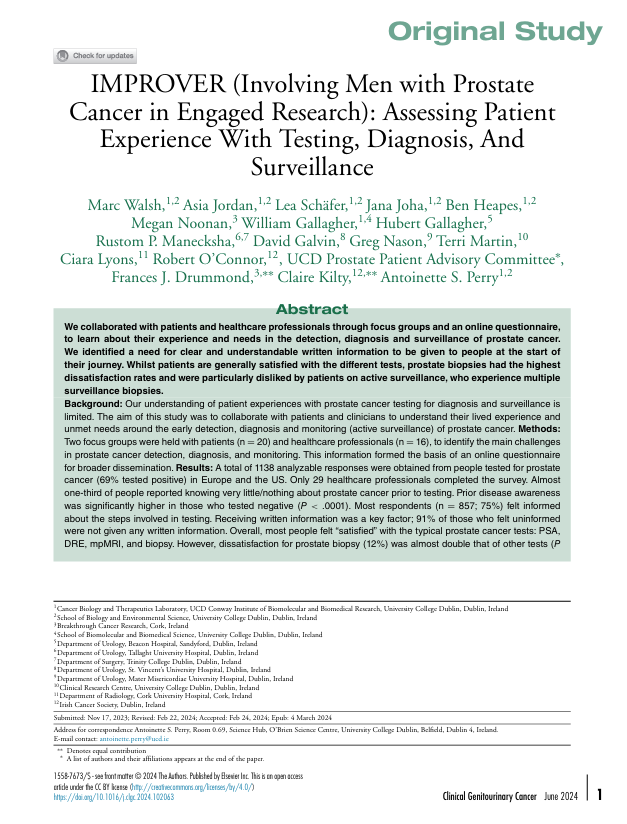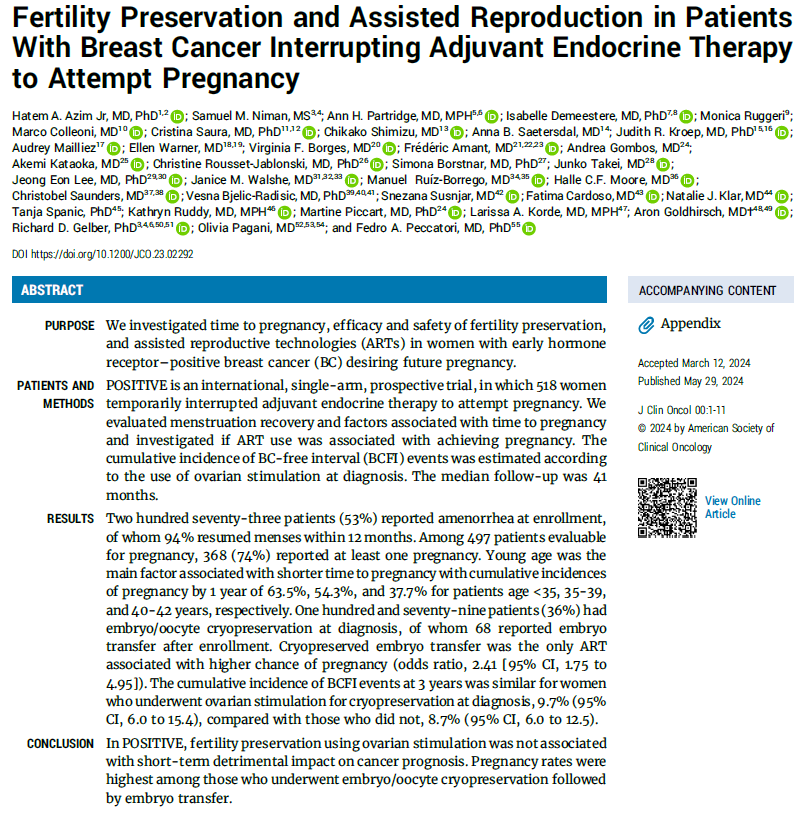Friday, 14 June, 2024
June Publications Update from the UCD Cancer Trials Cluster
The publication of peer-reviewed articles is an important step in the research process. Not only does it communicate new findings in cancer research, it allows research to be subjected to independent expert review.
Our researchers and collaborators have been busy publishing their research. Below we summarise just three of the almost 30 publications that have been released this year so far.
If you would like to read more of the research produced by the UCD Cancer Trials Cluster's researchers and trial units, you can find our publication list on our 'what we do' page here.

1. EORTC 2238 "De-Escalate": a pragmatic trial to revisit intermittent androgen deprivation therapy in the era of new androgen receptor pathway inhibitors
(opens in a new window)Link to article
For sixty years, androgen deprivation therapy (ADT) has been the standard treatment for advanced prostate cancer. Recent studies show that combining ADT with drugs like abiraterone, apalutamide, enzalutamide, or darolutamide improves survival and delays disease progression. However, this treatment, when given continuously, can cause serious side effects over time.
Intermittent ADT aims to reduce these side effects while maintaining effectiveness. This approach pauses treatment after 6-12 months if levels of PSA (prostate-specific antigen), a marker of prostate cancer, drop significantly.
This paper outlines the rationale behind the EORTC 2238 De-Escalate trial, which will revisit the concept of intermittent treatment in patients with a deep PSA response after 6 to 12 months of treatment. The trial seeks to spare them from chronic toxicities while maintaining their overall survival and improving their quality of life.

2. IMPROVER (Involving Men with Prostate Cancer in Engaged Research): Assessing Patient Experience With Testing, Diagnosis, And Surveillance
(opens in a new window)Link to article
The diagnostic pathway for prostate cancer has been largely unchanged since the introduction of the PSA (prostate-specific antigen) test in the 1990s. The PSA, alongside the digital rectal examination, remains a primary tool in clinicians' arsenals. However, few studies have examined the patient experience of this pathway and process.
The aim of this study was to engage and involve people affected by prostate cancer to understand their experiences and unmet needs around detection, diagnosis, and monitoring. Through focus groups and surveys with patients and healthcare professionals, the researchers sought to examine this aim.
Over 1,000 people from Europe and the USA took part in this study. The majority of people were at least somewhat familiar with prostate cancer and felt informed about the steps involved in testing. Participants noted that receiving written information was key to understanding, and the majority of people felt satisfied with the testing.
For a full breakdown of the findings, you can access the article using the link above.

3. Fertility Preservation and Assisted Reproduction in Patients With Breast Cancer Interrupting Adjuvant Endocrine Therapy to Attempt Pregnancy
(opens in a new window)Link to article
Fertility and pregnancy are priority concerns for some young breast cancer survivors. A breast cancer diagnosis can come with years of treatment, which may supress ovarian function and affect fertility.
The POSITIVE trial asked whether it is safe for young women with hormone-sensitive breast cancer to temporarily interrupt their endocrine treatment to permit pregnancy.
In this international trial, 518 women temporarily interrupted adjuvant endocrine therapy to attempt pregnancy.
Key findings include:
- Half of participants reported a lack of menstruation at trial enrollment, with 94% resuming menstruation within 12 months.
- Among 497 evaluable patients, 74% reported at least one pregnancy.
- Younger age was associated with a shorter time to pregnancy.
- At the time of diagnosis, 36% of patients froze their embryos or eggs. Using these frozen embryos significantly boosted their chances of getting pregnant.
- Over a three-year period, the rate of breast cancer-free interval was comparable between women who underwent ovarian stimulation to free embryos/eggs and those who did not. This suggests that ovarian stimulation did not have a negative short-term effect on cancer prognosis.
In the POSITIVE trial, fertility preservation through ovarian stimulation did not lead to any negative short-term effects on cancer prognosis. The highest pregnancy rates were observed among participants who underwent embryo or oocyte cryopreservation followed by embryo transfer.